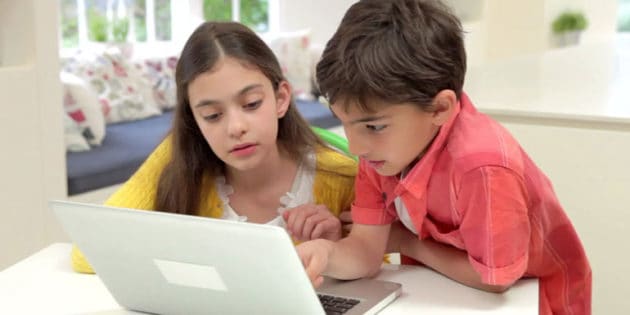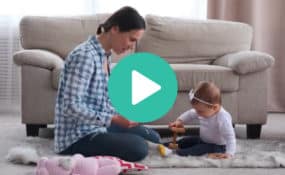Special Education Services and Distance Learning: Does it Work?
The Covid-19 Crisis has closed schools and rehabilitation clinics. But that hasn’t stopped the need for services such as speech therapy, occupational therapy and physical therapy.
Many schools and clinics have made the pivot to online therapy, or telehealth, in order to continue providing various therapies. But does it work? Is online therapy as effective as in person therapy? Can it be beneficial at all? Personally, I have made the switch to online therapy for about 90% of the children on my caseload, and so my answer to whether or not online therapy is effective is “yes” Some of the children I am working with, have actually made more progress working with me online, than when they were physically coming into the clinic for face to face therapy.
However, as with anything in life, online therapy has both positives and negatives. Therefore, let’s explore both, to help you decide whether or not it is a good fit for your child.
What’s Good About Online Therapy?
First of all, online therapy is better than no therapy at all. I normally would not use phrase “it’s better than nothing” but in truth, during a pandemic when there are no other options, it is.
Secondly, online therapy offers children face to face interaction with someone who is specifically there for them. Online therapists, just like therapists whom you would see face to face, are preparing lessons designed specifically for you child. Online therapy, provides your child with an opportunity to speak, converse with another person, ask questions and simply interact with someone outside of the family which is especially, if not more so, important during this time of social isolation.
In addition, online therapy provides children, especially special needs children, with the stability and consistency that they need in order to thrive. With daily routines changing overnight, seeing the same therapist face to face, even if by computer, keeps the children in a routine and helps them adjust to this “new normal” we are living in. Therapists, like classroom teachers, most often become a big presence in children’s lives and in many cases, they become as close as a family member.
It is important to note that many aspects of therapy, speech or occupational, are easily transferable to the “online therapy” format. In this day and age, most children are very well versed in anything involving electronics, so the majority of them will have very little trouble adapting to online therapy. What seems difficult to us as adults, is often very easily learned by children. Something that pleasantly surprised me, was that some of my most severe patients have adapted to online therapy easily, and actually seem to be enjoying it quite a bit.
And lastly, online therapy eases a parent’s workload just a little. You get to stay home! You don’t have to get your child dressed and remember to leave the house with plenty of time to make it to your appointment. It takes seconds to “log on”, making it easier to keep appointments. In addition, you don’t have to worry about keeping brothers and sisters occupied in the waiting room while your child is in his or her session.
Don’t forget, during this time, routines are what children (and even parents) are longing for the most. Having regular online therapy sessions will provide your child with some of the routine they are so desperately craving.
What Are the Drawbacks to Online Therapy?
One of the biggest drawbacks I have discovered are the distractions within the home. Often times, brothers and sisters are curious and either dominate the screen, or they interrupt therapy, by answering questions for the child who is receiving therapy, or giving hints and cues. In addition, pets can be a problem by running around and distraction the child receiving therapy, or making noise which makes it difficult for the therapist to hear and be heard.
Not being able to control the environment is a hurdle for therapists. As a therapist, when you work with a child face to face in a clinic setting, the room will be set up without distractions present. The environment is designed for their learning needs and skills. When therapy is online, therapists only have control of the screen.
Using a computer for therapy means certain cues that often help children learn are getting lost. It’s much more difficult for children to pick up on facial expressions and body language via a screen. Vocal inflections that are apart of conversation, may be harder to hear. It is difficult for a therapist to point to an object or direct a child’s gaze without wasting time adjusting the camera and screen.
It is also challenging to provide fun breaks. My “in clinic” therapy always involves a fun little break in the form of a craft or an activity. With online therapy, my “fun” brakes are limited to a quick song or dance.
And, of course, some aspects of therapy are just not able to be converted to online therapy.
How Do We Maximize What Can Be Done with Online Therapy?
First and foremost, reduce the distractions within the home. Put pets in a different room, or leave them outside in the yard. Ask siblings to play in another room. Don’t place the computer on which your child is working right next to you as you are doing household chores, watching television or having a phone conversation. That becomes distracting for the therapist and especially for your child, which in return, will affect their performance.
In addition, try to do your child’s therapy session on a larger tablet or a computer with a larger monitor. This lets your child see the therapist better, as well as images the therapist puts on the screen. Cell phones, while great because they are portable, are so small that it becomes difficult for the child to pick up on little facial nuances and body language that are so valuable in communication.
And finally, always communicate with your child’s therapist. It is essential that you understand what is going on in your child’s therapy. You need to know the therapy goals, so you can support them at home. Remember that follow through at home is now more important than ever!







